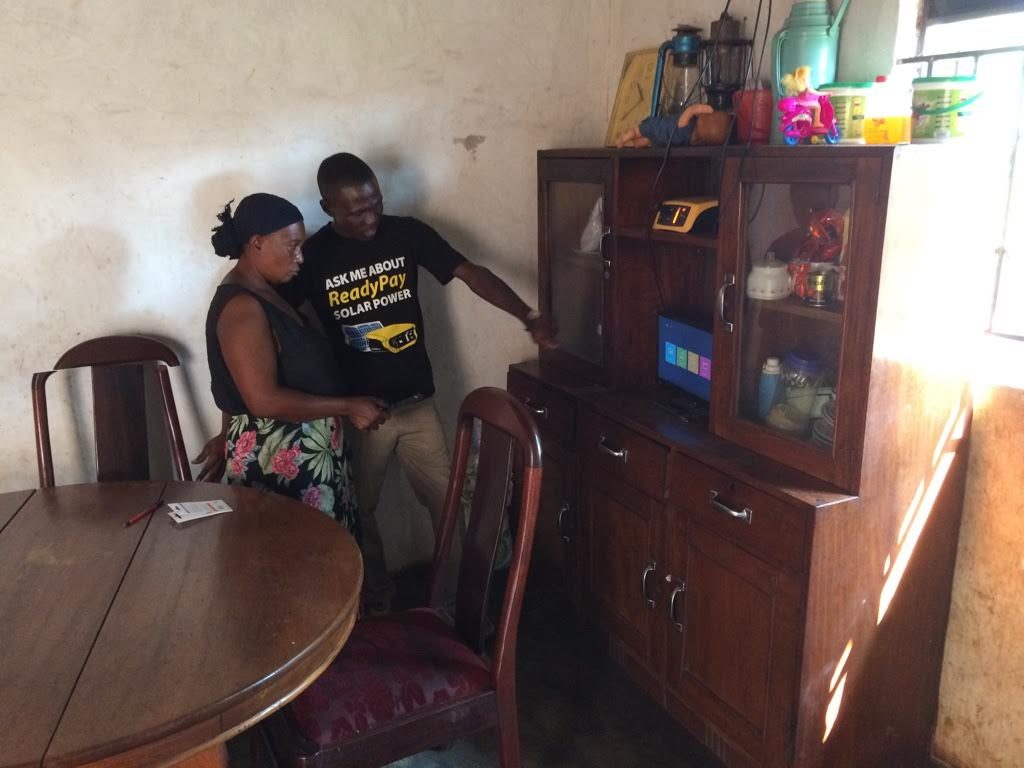Interview with Andrew Reicher
Angel investor in off-grid energy companies
Location: UK and across rural Africa
“I do not measure impact. I know it when I see it”.
For more than a decade, Andrew Reicher worked for large financial firms aiming to encourage economic development in some of the world’s poorest corners. Again and again, he saw the benefits of the work fail to reach the people who needed it most. The experience left him sceptical that conventional development mechanisms were the right tool to transform the lives of rural people.
Reicher says that’s especially true when it comes to electrical power in sub-Saharan Africa. Financial institutions tend to put money into large-scale, on-grid power generation. Yet that power was unlikely to ever reach the two-thirds of the population that lived in rural villages. That’s because extending the grid to include those rural people wouldn’t make sense, even if there was money to do it. “You’re needing to spend $US2,000 or US$3,000 per household, and the household might just want to run two lightbulbs and a phone charger”, Reicher points out. “The equation doesn’t work”.
It’s a problem that development professionals have been trying to solve for decades. But in rural Africa, the solution doesn’t have to involve extending the grid, thanks to five technologies that have recently seen improvements: solar panels, batteries, energy efficient lights and other devices, mobile payments, and encryption.
With those ingredients, Reicher says, “You have a recipe for for off-grid electrification, for the price of candles and kerosene”.
With that insight in mind, Reicher has developed another, less formal strategy for solving Africa’s energy access problem. He picks out fledgling companies that want to provide off-grid electrical equipment, and makes investments in the range of US$50,000 to US$100,000.
Although Reicher’s investment has evolved into a strategy, it began with an accident. Charlie Bosworth, a family friend, had launched Miro Forestry, a sustainable company that needed seed capital. Reicher agreed to put in some money as part of a US$1 million funding package. That was in 2009. Since then, the company has gone on to raise tens of millions and now operates sustainably managed tree plantations on more than 30,000 hectares of concessions in Ghana and Sierra Leone.
“I’m delighted that I did that,” Reicher says. “A year later, I started to get interested in energy access companies”. He learned that a Cambridge-based solar firm called Azuri Technologies was trying to raise US$500,000 from foundations, but was struggling with the required paperwork and evaluations. Reicher asked to see their offices and operations, then offered to make an investment.
At that point, Reicher was hooked. Today, he’s helped to launch a total of 10 companies.

His experience demonstrates the importance of non-institutional investors in a challenging sector. Institutional investors use time-consuming processes to limit their risk, which can hold a company back from taking their first steps. “The time and energy of the business is distracted by the need to chase money, fill out forms, satisfy the needs of institutions”, he says, “rather than have the money meet the needs of the business”.
Individual investors can think about risk differently, and the companies Reicher’s invested in have found that valuable.
That’s not to say that every important company developing off-grid solutions for rural Africa owes its existence to angel investors. M-KOPA, one of the most successful solar companies in the region, grew out of M-PESA, a money-transfer service launched by Vodafone. “It had a corporate godfather”, Reicher explains.
When asked about the challenges of this work, Reicher points to the business founders, who tend to be young, inexperienced, and without roots in the local African community. “For these people, it’s an adventure,” he says. “It needs to change to being a disciplined system because otherwise it can’t be controlled. And that takes the romance away by turning it from that adventure into something more systematic and, if you like, bureaucratic”.
To address that problem, Reicher provides advice and guidance as well as money. He’s coached the people he invests in on cash flow problems, encouraged them to hire trained accounting and marketing staff, and used his own networks to help them find additional investors. Meanwhile, he says the experience of working with young people is exhilarating. “It gives you an electric shock,” he says. “It’s like the elixir of youth to be with young people who want to spend time with you. But it’s got to be a relationship of equal respect”.

Reicher says he has no specific expectation to make a return on his investment. And if he does make a return, he plans to reinvest it in the same way. In five to 10 years, he hopes that two or three of the companies he picked will be sustainable and make a difference by acquiring a large market share.
“This has been the single most enjoyable phase of my entire career,” Reicher says. “But it required everything that went before to have the means and the knowledge to do what I’m doing now”.
—James Trimarco, Writer and researcher




